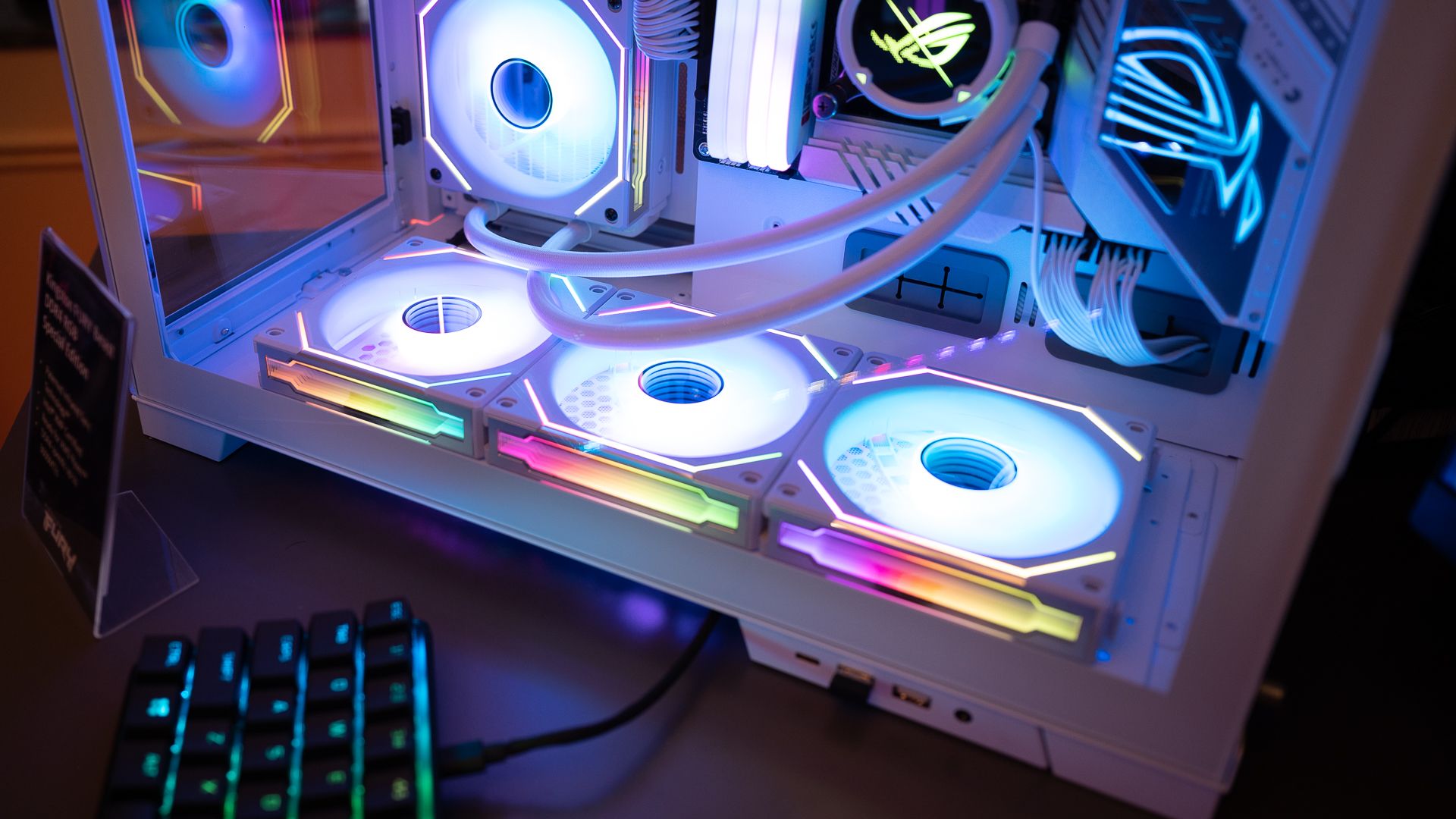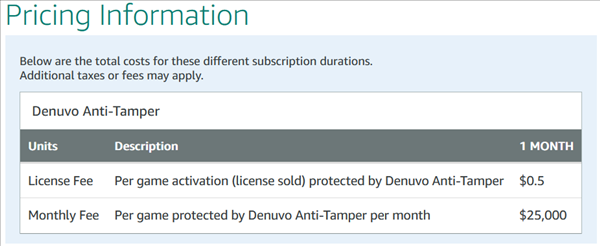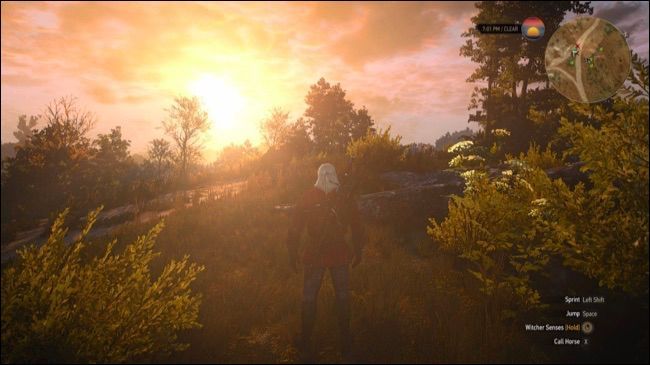Quick Links
Key Takeaways
Denuvo is an anti-piracy (DRM) solution that some developers include in their games. Denuvo has been known to hurt game performance, making the gaming experience worse. Denuvo is designed to make games more difficult to crack, making it impossible for people to pirate them until a while after their release.
Denuvo is one way game makers can deter piracy and boost sales. But it isn't without controversy --- Denuvo is one of the most disliked anti-piracy solutions out there. But why? What makes it so unpopular with gamers? Here's everything you need to know.
What Is Denuvo?
Denuvo is a digital rights management (DRM) solution and anti-tamper for game developers. Game developers can license Denuvo and integrate it into their PC games. If they do, the Denuvo software provides anti-piracy protection. It's designed to make it more difficult for people to "crack" games and distribute them for free. According to Denuvo, it "stops the reverse engineering and debugging" required to crack a game.
No anti-piracy solution is perfect, but Denuvo promises the "longest crack-free release window." In other words, game developers are hoping their games won't be cracked for a while, forcing people who might otherwise pirate the game to buy it if they want to play the game without waiting.
Denuvo isn't an additional piece of software that is installed on your computer, and you won't see it in your list of installed software. A game that uses Denuvo has the Denuvo anti-piracy software integrated into its code. If the game is running, Denuvo is running as part of the game. Anyone who wants to crack a game has to get around the Denuvo protection, which makes that process more difficult.
Does Denuvo Hurt Game Performance?
Fair-minded gamers should want game developers to make money selling their games. But that's not what this is about. Like often happens with anti-piracy solutions, gamers have long objected that Denuvo creates problems for legitimate, paying customers.
Denuvo claims this is nonsense. The official Denuvo website says "Anti-Tamper has no perceptible effect on game performance nor is Anti-Tamper to blame for any game crashes of genuine executables."
We've contacted Irdeto, the company that makes Denuvo, for comment. We'll update this article if we hear back.
But there's a lot of evidence to the contrary. The director of TEKKEN 7 blamed Denuvo's DRM for performance problems in the PC version of the game, for example---a rare case where a game developer, rather than merely a player, knocked Denuvo.
Some game developers have removed Denuvo from their games after release. Overlord Gaming ran some benchmarks on the with-Denuvo and without-Denuvo versions of these games. As Extreme Tech notes, Denuvo causes performance issues in nearly every tested game. From longer load times to frame rate drops, Denuvo's protection appears to slow things down. Performance sometimes improves by 50% after Denuvo is removed by the developer.
The results generally point to Denuvo hurting performance the most in two scenarios:
- When You're CPU Bound: When the power of your CPU is the limiting factor.
- When You're Storage Bound: When the read or write speed of your storage is the limiting factor
So, if you're playing a game with Denuvo and your performance is hurting or you're experiencing terrible load times, try installing it onto a fast NVMe drive or upgrading your CPU. Otherwise, you'll just have to wait for a performance patch from the developers.
Denuvo has even been known to make games literally unplayable on occasion. When Intel's 12th-generation processors (Alder Lake) were released, more than 90 games were broken by Denuvo. It took more than a month for all of them to be fixed.
That leads to another, broader question: What happens to old games that never have their DRM protection removed? In the distant future, will it be impossible to run some games because then-antiquated DRM measures don't like the 2048 core, ARM-based CPUs we have in our gaming PCs, or because it can't reach authentication servers that have gone the way of the dodo?
Does Denuvo Stop Cracks?
It's clear why gamers don't like Denuvo. But game developers keep using it because it slows down crackers and makes piracy more difficult --- sometimes.
You can see how long it took before Denuvo games were cracked. Some games, like DOOM, were cracked on their release day. Some, like Sonic Mania, were cracked a week after release. Hogwarts Legacy only took 11 days to be cracked. But Denuvo seems to buy a lot of time for quite a few games --- Assassin's Creed: Origins wasn't cracked for 99 days.
In the arms race between crackers and Denuvo, Denuvo seems to be slowly winning out. Cracking a game with Denuvo is an extremely complicated process and requires a specialized skill set, not to mention a willingness to take a huge legal risk.
Delaying a game being cracked is a pretty big deal to game developers. It means players had to buy the game if they wanted to play it within the first three months, which --- in theory --- ensures more sales.
Denuvo's website proudly features a quote attributed to Square Enix: "It's thanks to you guys that people have to buy the game."
Even if Denuvo causes problems for legitimate players, it's easy to see why game developers keep choosing to use it in their games. Thankfully, some---but not even most---developers are nice enough to patch Denuvo out later. It's pretty unnecessary after the game has already been cracked.
Gamers Don't Like Denuvo, But Game Developers Do
At best, Denuvo would do absolutely nothing for you if you're a player who legitimately bought the game. At worst, Denuvo causes performance problems and means you need a more expensive video card and faster CPU to play the latest games. It worsens the experience for paying customers. People with lower-end hardware take the brunt of the damage, as higher-end gaming PCs can power through the problems and still deliver very playable performance.
For the sake of argument, let's say the markets of Denuvo are right and that Denuvo itself isn't a problem. That would mean game developers often cause problems when adding Denuvo to their games. So maybe the problem is game developers not understanding Denuvo properly. But, either way, that's a worse experience for gamers.
Unfortunately, it doesn't look like game developers aren't going to stop using Denuvo any time soon. Barring a serious boycott of games that include Denuvo---something that pops up in the occasional negative Steam review, but doesn't seem like a threat game developers are worried about --- game developers think they'll make more money by including Denuvo, and they may be right.
Just how much does Denuvo cost developers, anyway? The exact details aren't clear. The best picture we've gotten of Denuvo's pricing comes from a listing on the AWS Marketplace. That suggests that Denuvo has a base cost of $25,000 per month, then an additional $0.50 per license sold. Of course, it is entirely possible---even likely---that other Denuvo contracts are priced differently.
That sounds like a lot, but compared to the amount of money put into modern AAA games, it really isn't. Let's consider a hypothetical game that sells for $60 (which is the standard price). Denuvo would pay for itself completely with only 417 sales per month. Big titles can easily sell hundreds of thousands or millions of copies in the first several weeks after release.
Hopefully, a future version of Denuvo or another competing anti-piracy program can accomplish the same goals for developers while being lighter on resources.
Not Everyone Uses Denuvo
Some game developers go the other way, of course. CD Projekt Red doesn't use any anti-piracy software at all in The Witcher 3. Anyone can download and play it. As the co-founder of CD Projekt Red and GOG puts it:
But the piracy factor was irrelevant, because we cannot force people to buy things. We can only convince them to do it. We totally believe in the carrot, not in the stick.
That attitude seems to be paying off for CD Projekt Red, too. The Witcher 3 has sold more than 40 million copies since it was released. Cyberpunk 2077 --- despite an extremely rocky launch --- managed to sell more than 13 million units in its first few weeks and has gone on to sell more than 20 million in total.
Unless many more game developers take that same approach, Denuvo and similar solutions will be around for a long time to come. But hopefully, they'll get better. If software like this is necessary, gamers should at least expect better than Denuvo's slowdowns.




